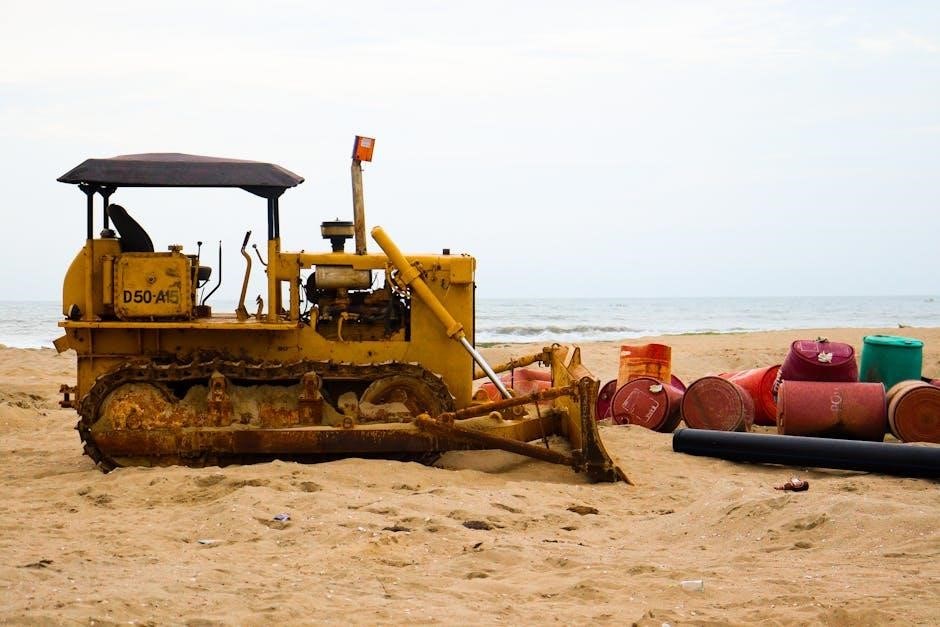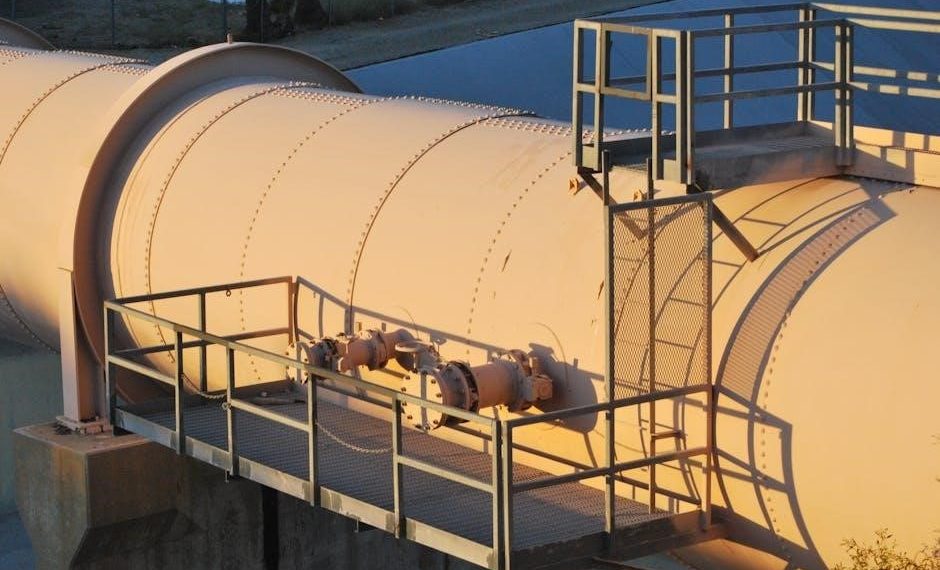pipeline dominique morisseau pdf
Pipeline‚ a powerful play by Dominique Morisseau‚ explores the school-to-prison pipeline‚ focusing on educational inequality and systemic racism. Its critical acclaim has made it a significant work in modern theater‚ with a PDF version widely available for study.
Plot Summary
Pipeline‚ written by Dominique Morisseau‚ follows Nya Joseph‚ a dedicated inner-city public high school teacher‚ as she navigates the challenges of educating her students while battling the systemic inequalities they face. Her son‚ Omari‚ attends a private boarding school‚ where a controversial incident jeopardizes his future‚ threatening expulsion. Nya must confront her own choices as a single mother and the systemic forces pushing Omari toward the criminal justice system. The play delves into the tensions between Nya’s commitment to her students and her desperate attempts to save her son from the school-to-prison pipeline. Through Omari’s struggle and Nya’s internal conflict‚ the play highlights the emotional toll of systemic racism and the fragility of hope in an unjust system.
Themes
The play explores themes of systemic racism‚ educational inequality‚ and the emotional struggles of Black families navigating the school-to-prison pipeline‚ highlighting societal and personal tensions.
3.1 The School-to-Prison Pipeline
The school-to-prison pipeline refers to the systemic process by which marginalized students‚ particularly Black and Latino males‚ are funneled out of public education and into the criminal justice system. In Pipeline‚ this theme is central‚ as Nya Joseph‚ an inner-city teacher‚ fears her son Omari will become a victim of this system. The play highlights how zero-tolerance policies‚ racial biases‚ and inadequate resources disproportionately target underprivileged students‚ leading to suspensions‚ expulsions‚ and eventual incarceration. Morisseau examines how educational institutions fail to support these students‚ instead criminalizing their behavior and perpetuating cycles of inequality. The pipeline is depicted as a devastating consequence of systemic racism‚ with long-lasting effects on individuals and communities.
3.2 Educational Inequality
Pipeline by Dominique Morisseau sheds light on the stark disparities within the American educational system‚ particularly affecting marginalized communities. The play contrasts the underfunded public school where Nya teaches with the privileged private boarding school her son Omari attends. This dichotomy highlights systemic inequalities‚ such as limited resources‚ overburdened teachers‚ and disciplinary practices that disproportionately target students of color. Morisseau critiques how these disparities perpetuate cycles of disadvantage‚ with public schools often failing to provide the support and opportunities needed for students to thrive. The play underscores how educational inequality is not just about access to resources but also about the value society places on certain students’ futures.

Character Analysis
Nya Joseph‚ a dedicated public high school teacher‚ and her son Omari‚ a student at a private boarding school‚ embody the struggles of systemic inequality and personal identity.
4.1 Nya Joseph
Nya Joseph is a resilient inner-city public high school teacher‚ deeply committed to her students’ success while striving to provide her son‚ Omari‚ with better opportunities. As a single mother‚ she faces the challenges of balancing her professional dedication with the struggles of parenting. Her character reflects the strength and vulnerability of Black women navigating systemic inequalities. Nya’s journey highlights her internal conflict between her aspirations for Omari and the harsh realities of the education system. Through her story‚ Morisseau vividly portrays the emotional toll of fighting against a system designed to fail marginalized communities‚ making Nya a powerful symbol of both struggle and resilience.
4.2 Omari
Omari is Nya Joseph’s teenage son‚ a student at a private boarding school‚ whose privileged education contrasts sharply with the underfunded system his mother teaches in. A pivotal incident at his school jeopardizes his future‚ exposing the fragility of his position within a system rigged against Black youth. Omari’s character embodies the tension between opportunity and systemic failure‚ as he navigates his identity and the pressures of his environment. His relationship with Nya reveals the complexities of parental love and the challenges of bridging generational and cultural divides. Through Omari’s journey‚ Morisseau highlights the vulnerabilities faced by young Black males in America‚ emphasizing the urgency of addressing the school-to-prison pipeline’s devastating impact.

About Dominique Morisseau
Dominique Morisseau is a renowned American playwright and actress known for her impactful works addressing systemic inequities‚ particularly within African American communities. Her play Pipeline earned the Edgerton Foundation New Play Award in 2016 and has been widely acclaimed for its exploration of the school-to-prison pipeline. In 2018‚ she received the prestigious MacArthur Fellowship‚ recognizing her contributions to theater and social justice. Morisseau is also the author of The Detroit Project‚ a three-play cycle that includes Skeleton Crew‚ Paradise Blue‚ and Detroit ’67. Her writing often blends poetry and prose‚ creating powerful narratives that resonate deeply with audiences. She is a prominent voice in contemporary theater‚ advocating for marginalized stories through her work.

Dominique Morisseau’s Other Works
Dominique Morisseau is also known for The Detroit Project‚ a three-play cycle‚ including Skeleton Crew‚ Paradise Blue‚ and Detroit ’67. Her work often highlights social justice and African American experiences.
6.1 The Detroit Project
The Detroit Project is a three-play cycle by Dominique Morisseau‚ exploring African American life and social justice in Detroit. It includes Detroit ’67‚ set during the 1967 riots; Paradise Blue‚ a jazz-infused drama about gentrification; and Skeleton Crew‚ focusing on auto industry workers. Each play delves into themes of systemic inequality‚ resilience‚ and community. While separate from Pipeline‚ these works share Morisseau’s commitment to addressing racial and economic disparities. The cycle has been praised for its vivid storytelling and historical depth‚ solidifying Morisseau’s reputation as a leading voice in contemporary theater.
6.2 Other Notable Plays
Beyond The Detroit Project‚ Dominique Morisseau has made significant contributions to theater with other notable works. Confederates‚ an American Revolutions commission‚ explores themes of race and identity‚ showcasing her ability to tackle complex social issues. Her play Skeleton Crew‚ though part of The Detroit Project‚ is also recognized for its poignant portrayal of auto industry workers’ struggles. Morisseau’s works consistently highlight systemic inequality and resilience‚ earning her acclaim as a leading contemporary playwright. Her collaborations with major theaters and programs further underscore her influence in shaping modern American drama.
Significance of the Play
Pipeline holds profound significance as it sheds light on the systemic issue of the school-to-prison pipeline‚ affecting marginalized communities. Dominique Morisseau’s work sparks crucial conversations about race‚ education‚ and justice‚ resonating deeply with audiences. The play’s emotional depth and unflinching portrayal of inequality make it a vital contribution to contemporary theater. By centering Nya and Omari’s story‚ Morisseau humanizes the broader societal issue‚ emphasizing the personal and communal impact; Its acclaim underscores its role in fostering dialogue and driving change‚ solidifying its importance in addressing urgent social challenges.

Accessing the PDF Version
The PDF of Pipeline by Dominique Morisseau is available on platforms like Adobe Reader. Ensure compatibility with your browser‚ as some versions may not support in-browser viewing. Download here.
8.1 Platforms for Download
The PDF version of Pipeline by Dominique Morisseau can be accessed through various platforms. Theatre Communications Group and educational databases offer authorized downloads. Additionally‚ platforms like Adobe Reader and Annas Archive provide access to the play. Ensure you use trusted sources to avoid unauthorized versions. Some browsers may require external plugins for viewing‚ especially on Mac OS. Always verify the file’s authenticity to maintain quality and support the author’s work. These platforms ensure easy access for students and researchers to study this impactful play.
8.2 Technical Considerations
Accessing the PDF of Pipeline requires compatibility with standard document viewers like Adobe Reader. Ensure your device supports PDF formats for smooth reading. Modern browsers may need external plugins‚ especially on Mac OS‚ due to restrictions on in-browser viewing. Download the latest version of Adobe Reader for optimal performance. Verify file integrity by checking the MD5 hash if available. Avoid unauthorized platforms to ensure the file’s authenticity and quality. For troubleshooting‚ refer to browser guidelines or platform-specific support resources. Reliable sources like Theatre Communications Group guarantee secure and high-quality downloads. Always prioritize verified platforms to maintain the integrity of the document and support the author’s work.
Resources for Further Study
For deeper analysis of Pipeline‚ numerous resources are available. Educational institutions and theater organizations offer study guides‚ providing insights into themes‚ characters‚ and historical context. Interviews with Dominique Morisseau shed light on her creative process and inspirations. Additionally‚ essays and articles on the school-to-prison pipeline offer real-world perspectives‚ enriching the play’s understanding. Many universities and libraries provide access to these materials through their websites or online portals. Platforms like Theatre Communications Group and educational databases are excellent starting points. These resources are invaluable for students‚ educators‚ and theater enthusiasts seeking to explore Pipeline in greater depth.
Critical Reception and Reviews
Pipeline by Dominique Morisseau has received widespread critical acclaim for its powerful portrayal of the school-to-prison pipeline and its impact on marginalized communities. Critics praise the play’s raw emotional depth and its unflinching examination of systemic inequality. Many highlight Morisseau’s ability to craft complex‚ relatable characters‚ particularly Nya and Omari‚ whose struggles resonate deeply with audiences. The play has been awarded the Edgerton Foundation New Play Award and has been recognized for its timely and thought-provoking narrative. While some critics note the heavy nature of the subject matter‚ the consensus is that Pipeline is a necessary and impactful work that sparks crucial conversations about education and justice in America.
Pipeline by Dominique Morisseau is a gripping and thought-provoking play that sheds light on the harsh realities of the school-to-prison pipeline and its devastating impact on communities of color. Through the story of Nya and Omari‚ Morisseau masterfully explores themes of educational inequality‚ systemic racism‚ and the emotional toll these issues take on families. The play has been widely praised for its raw honesty‚ nuanced characters‚ and its ability to spark crucial conversations about justice and education. As a significant work in contemporary theater‚ Pipeline continues to resonate with audiences and scholars alike‚ offering a powerful lens through which to examine America’s ongoing struggles with inequality. The PDF version of the play remains a vital resource for deeper study and reflection.
